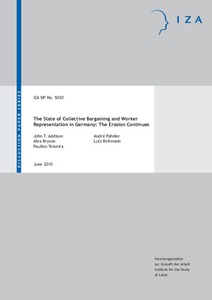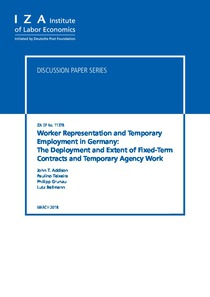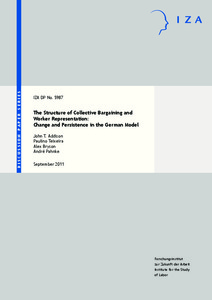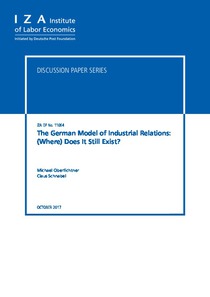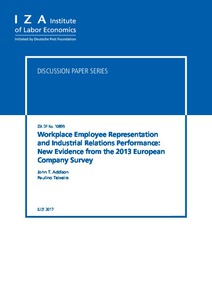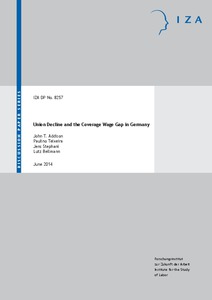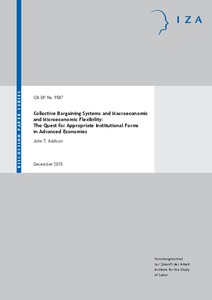Collective bargaining and innovation in Germany: cooperative industrial relations?
"The effect of collective bargaining on innovation has long been in dispute. At the level of theory, the hold-up problem has been used to justify positive as well as negative effects of unionism. At the empirical level, although some would consider the North American evidence as cut and dried,...
| Main Authors: | Addison, John T., Teixeira, Paulino, Evers, Katalin, Bellmann, Lutz |
|---|---|
| Institution: | ETUI-European Trade Union Institute |
| Format: | TEXT |
| Language: | English |
| Published: |
Bonn
2013
IZA |
| Subjects: | |
| Online Access: | https://www.labourline.org/KENTIKA-19121431124919496139-Collective-bargaining-and-inno.htm |
Similar Items
-
The state of collective bargaining and workier representation in Germany: the erosion continues
by: Addison, John T., et al.
Published: (2010) -
The extent of collective bargaining and workplace representation: transitions between states and their determinants. A comparative analysis of Germany and Great Britain
by: Addison, John T., et al.
Published: (2009) -
Indicative and updated estimates of the collective bargaining premium in Germany
by: Addison, John T., et al.
Published: (2013) -
Worker representation and temporary employment in Germany: the deployment and extent of fixed-term contracts and temporary agency work
by: Addison, John T., et al.
Published: (2018) -
Change and persistence in the German model of collective bargaining and worker representation
by: Addison, John T., et al.
Published: (2011)


